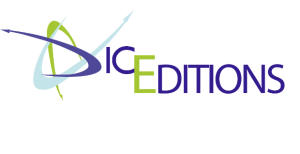Document type Book chapter, pp.139-56 of "Les mutations contemporaines du droit de l'animal", DICE Editionspublisher: Olivier Le Bot, Confluence des droits collection, ISBN: 979-10-97578-19-0
Author: Alice Di Concetto
Preview: Introduction: "Lobbying" has a poor reputation in France. The methods and influence of private interest groups are regularly criticised, particularly by supporters of animal welfare. [...] It is, however, difficult to identify precisely who the lobbyists are, because many different sorts of organisation represent interest groups, with an equal variety of aims and methods [...].
Acknowledging the diversity of the organisations that engage in lobbying, the European Union institutions, in a new inter-institutional agreement on transparency signed in 2021, have redefined the scope of activities of interest representatives. These are now defined as "activities carried out by interest representatives with the objective of influencing the formulation or implementation of policy or legislation, or the decision-making processes of the signatory institutions or other EU institutions, bodies, offices and agencies". [...]Beyond the semantics, animal advocates question the goals of private interest groups who block reforms intended to improve the lives of animals, to protect their economic interests. [...]As a result, some researchers are appealing to businesses to show responsibility by calling a halt to the pursuit of private interests, instead adopting ethical lobbying behavior. Such a simple appeal for self-restraint would seem a priori to be futile. Indeed, relying on inherently private interest groups to concern themselves voluntary with the public good and behave like non-profit organizations would appear a risky strategy. The more appropriate agent for the task of neutralizing the damage inflicted by lobbyists on democratic decisions would seem to be the State, given that part of its mission is to serve the wider interest. [...] Nevertheless, the creation of transparency rules for public life will not, on its own, rein back the power of private interest groups and ensure that the whole of society's aspirations are fairly taken into account. Taking the rules on animal protection in livestock farming as a common thread, this paper will first demonstrate how the structure of the existing legal framework works against consideration of animal interests (I). It will then show that the complexity of the governance of animal issues in European public policy benefits private interest groups, which are better equipped with skills and financial support (II). Last, it will show that the weak regulation of lobbying activities further tips the scales in favor of private interest groups to the detriment of public interest groups (III).




